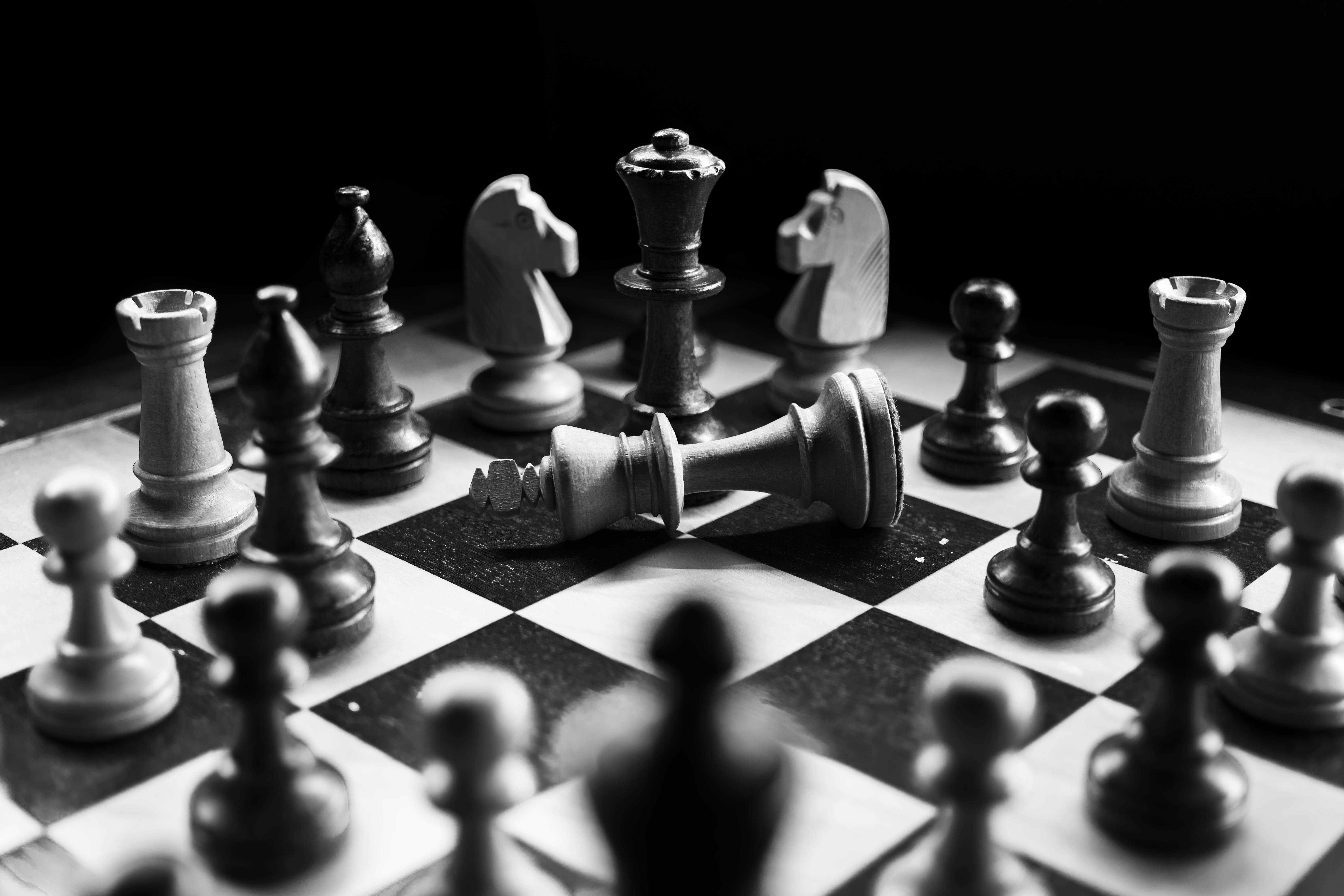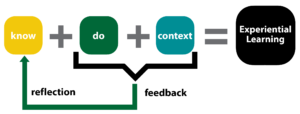Gamifying Learning Experiences
 Summary: Discover how gamification can transform your teaching! Learn strategies to engage students and enhance learning through game-like experiences in our latest article.
Summary: Discover how gamification can transform your teaching! Learn strategies to engage students and enhance learning through game-like experiences in our latest article.
Date of publishing: December 13, 2023
In this blog post, we’ll explore helpful tips on how to incorporate gamification into your own university courses. Dr. Martin Gaal, a Political Studies faculty member, has successfully incorporated gamification into two of his courses, POLS 261 Global Politics and POLS 201 Global Citizenship Cultures and Coexistance.
While POLS 261 and POLS 201 are not prerequisites for each other, Dr. Gaal does see value in students taking POLS 261 before 201. This sequential progression aligns with the staircase model of applied undergraduate learning. In 261, students experience a classroom-supported simulation of the world. In 201, students engage with a self-directed, and self-created, simulation of the world.

Graphic adapted from Beaudoin, F .D ., Brundiers, K . (2017) A Guide for Applied Sustainability Learning Projects: Advancing sustainability outcomes on campus and in the community . Philadelphia: Association for the Advancement of Sustainability in Higher Education (AASHE) .
POLS 261 – Simulating the World
In POLS 261, students engage in the Statecraft simulation—a game where they form countries, select regime types, and navigate a world mirroring international relations. Free Open Educational Resources textbooks offset the associated game fee.
The course emphasizes active learning, with one hour in class per week dedicated to gaming and an expectations that groups will dedicate time outside class in preparation. Students complete group work on Canvas, that requires students to apply the course material to the simulation, allowing Dr. Gaal to track progress. In the simulation, students take on the roles of countries, navigating both intra-national and international relations. The Secretary General (SecGen), the creatively-retitled Teaching Assistant, plays a pivotal role in managing the simulation, while Dr. Gaal adopts a hands-off approach, allowing students to explore and make decisions independently.
Tip #1: Recognize the need to create content that resonates within a rich context. |
Assessment in POLS 261 is centred around active participation in the StateCraft simulation. Students are assessed on engagement, collaboration, and contributions to gameplay. Weekly memos, reflecting on class learning applied to the game, reinforce the connection between theoretical knowledge and practical application (the knowing-doing gap). The SecGen’s role is crucial, providing feedback during weekly Presidents’ Meetings and leveraging a rich manual passed down from each subsequent SecGen.
The term concludes with a video project comparing students’ game experiences with theoretical aspects studied in class. This project bridges the gap between studying global politics and actively participating in a simulated world.
Tip #2: Design a simulated context, where students take on roles, make decisions independently, and navigate authentic variables. |
POLS 201: Creating Empathy Games
Transitioning to the global citizenship class (POLS 201), Dr. Gaal introduces a unique project where students create games in groups to explore empathy, for example focusing on the experiences of refugees escaping uncertainty or differential impact of climate change on marginalized communities. This experimental project aims to foster cultural competency and stimulate discussions about global issues through game creation.
Dr. Gaal uses a survey to set up groups based on interests and technical capabilities. Future iterations aim to enhance group learning by considering students’ prior international experiences. To support building student autonomy in the self-directed process, Dr. Gaal allocates class time earlier in the term for groupwork and gradually transitioning to a more independent learning model. To ensure effectiveness, Dr. Gaal also incorporates laddered stages to check on group progress. There are three main assignments with the game development process: identifying a topic and rationale, defining the mechanics of the game with appropriate course concepts, and peer reviews of other groups’ games with reflection.
Tip #3: Incorporate laddered stages and regular check-ins to ensure effective progress in group work. |
The remaining assessment components include a traditional midterm and final exam, with the game and final exam each accounting for the same proportion of the grade. This emphasis underscores the importance of being able to articulate a global citizenship problem comprehensively from beginning to end.
Reflective Practice
Dr. Gaal actively seeks feedback from students through surveys conducted at the beginning, middle, and end of the term. His commitment to reflective teaching practices and openness to evaluating and adapting methods over time highlight his dedication to continuous improvement. Dr. Gaal seeks evidence of students demonstrating the shift from passive listeners to active players and creators, ensuring an impactful and transformative learning experience for students.
Tip #4: Actively seek feedback from students through surveys at the beginning, middle, and end of the term to understand the effectiveness of teaching strategies. |
Integrating experiential learning (knowing and doing in a rich context, with reflection and feedback – see the diagram below) with gamification is a way that educators can create dynamic and engaging learning environments. Please reach out to Martin Gaal regarding gamification in political studies or Aditi Garg for more information on experiential learning in the classroom.

This blog post was written from a summary of a conversation between Martin Gaal and Aditi Garg transcribed in MS Teams and summarized by ChatGPT 3.5 on December 12, 2023.
This resource is shared by Aditi Garg at the Gwenna Moss Centre for Teaching and Learning (GMCTL), University of Saskatchewan, under a CC BY-NC-SA license
Photo by Felix Mittermeier from Pexels: https://www.pexels.com/photo/grayscale-photography-of-chessboard-game-957312/
Keywords:
#Active Learning
#Course Design
#Instructional Strategies
#Assessment
